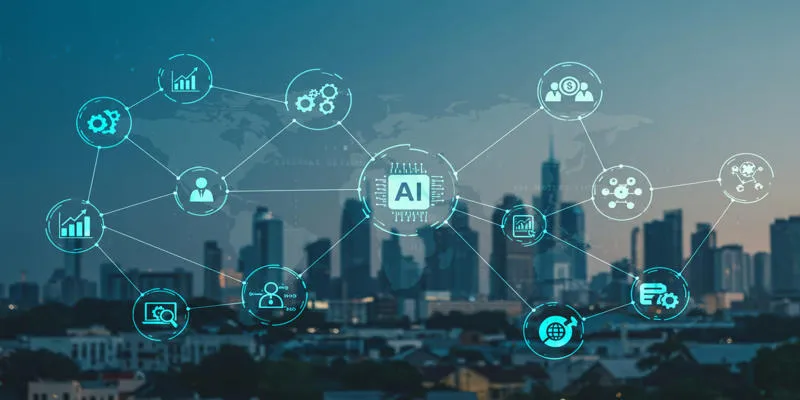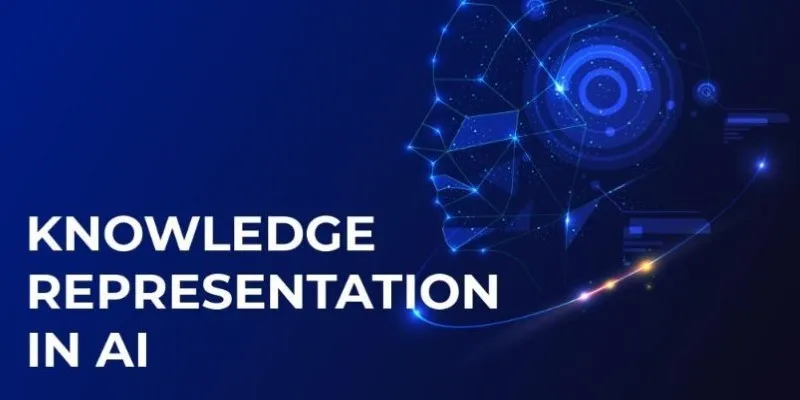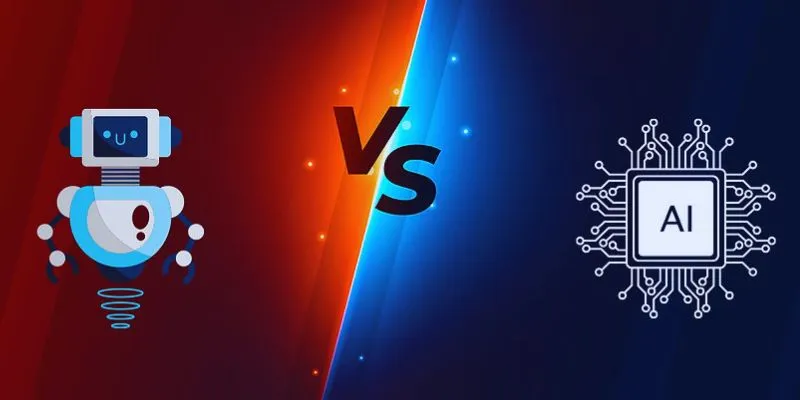Among many fields, artificial intelligence (AI) has lately taken the stage in healthcare. Chatbots are the most practical AI techniques accessible in healthcare. These intelligent tools are helping patients change their interactions with healthcare systems. By providing patients with fast communication, assistance, and support, chatbots increase healthcare accessibility.
Artificial intelligence-powered chatbots can quickly answer questions, book appointments, and even remind patients of their medications. It improves the patient experience of treatment as well as the efficiency and value of the healthcare system. As more hospitals use AI-driven chatbots, the patient experience becomes simpler and more customized. This guide will look at how chatbots improve patient care and why they are becoming essential for healthcare providers.

How Chatbots In Healthcare Are Transforming The Patient Experience
Below are the key ways chatbots transform the healthcare experience and enhance patient care through AI technology.
Immediate Access to Information
One of the chatbots’ primary benefits for the healthcare industry is their fast information access ability. Many times, patients ask questions concerning symptoms, treatments, or medicines. Unlike waiting hours to speak with a doctor or nurse, a chatbot lets patients quickly get answers. Through treatment alternatives, AI-driven chatbots may handle common questions, condition-related knowledge, and patient direction. This quick access helps to reduce wait times and gives patients the knowledge they need to make good decisions.
Reducing Administrative Burden
Administrative chores, including billing, follow-up reminders, and appointment scheduling, can tax staff workers in many healthcare environments. Automating these tasks allows chatbots to help lighten this strain. Chatbots can inform patients of changes in their treatment, schedule visits, and send notes to them. This allows medical staff members to focus more on direct patient therapy, decreasing their load. It also ensures that patients receive quick treatment and raises healthcare institutions’ general effectiveness, reducing the likelihood of human errors.
Personalized Patient Interactions
Chatbots driven by artificial intelligence can provide every patient with unique experiences. Chatbots can customize their responses using patient data depending on personal health conditions, preferences, and past interactions. It renders the conversation more pertinent and successful. For a patient with a persistent illness, the chatbot can offer individualized advice based on their medical background for controlling it. This degree of customizing enables a more interesting and encouraging patient experience, fostering patient understanding and care.
Enhancing Patient Engagement and Education
By providing continuous information, chatbots can also enable patients to be active in their medical course. They can forward regular health advice, updates on new treatments, or reminders regarding medications and visits. Constant engagement motivates patients to participate actively in treatment and keeps them updated about their health. Moreover, chatbots can guarantee patients have the knowledge they need to make wiser decisions by offering educational materials on several medical subjects.
Improving Patient Follow-up and Monitoring
Patients sometimes require follow-up treatment following doctor visits. Chatbots much aid continuous support. Following surgery or other medical operations, for instance, a chatbot can follow up on the patient’s recuperation, inquire whether they are uncomfortable, and remind them of post-care directions. It guarantees that patients remain on target with rehabilitation and helps identify possible problems early on. Knowing they always have a trustworthy knowledge source helps patients find mental serenity.

Reducing Wait Times
Traditional healthcare systems often feature extended wait times, particularly for non-emergency conditions. By answering basic questions and managing quick responses, chatbots help to lower these wait times. They also help doctors concentrate on more difficult situations, enhancing the general flow of patient treatment. Chatbots can help streamline healthcare by lowering pointless waiting and relieving patients of stress. Patients can immediately obtain the help they need instead of waiting on hold for responses or standing in line.
Streamlining Telemedicine Consultations
Telemedicine has especially grown rapidly during the pandemic outbreak. In telemedicine visits, chatbots serve as the first point of contact and are thus crucial. Before a telemedicine consultation, a chatbot can compile relevant patient conditions, medical history, and symptom data. It ensures that, before the consultation, medical practitioners have the necessary expertise. By providing real-time statistics or answers to follow-up questions, chatbots can also support during the session. It enhances the effectiveness of virtual visits and the telemedicine experience.
Managing Mental Health and Emotional Support
Chatbots are used in the healthcare industry to help mental health and emotional well-being. Many people deal with stress, worry, or depression; artificial intelligence chatbots could provide a secure space where they could express their feelings. These chatbots can, if needed, link patients to licensed mental health providers, offer mindfulness exercises and coping strategies and even function as assistants. Those who feel it embarrassing to ask for help individually will find great advantage from this. Chatbots provide people with a low-stress, easily available method of tending to their mental health.
Enhancing Healthcare Accessibility
Many places of the world still struggle with healthcare accessibility. Chatbots provide 24/7 access to healthcare knowledge and support, helping close the distance. Chatbots can offer treatment, whether in remote locations or for individuals with mobility problems, without calling direct visits to medical facilities. It increases the availability of healthcare to a greater spectrum of people, therefore enhancing general health results. Chatbots also enable many languages, therefore enhancing accessibility for a variety of groups.
Data Privacy and Security
Data security is a major issue in healthcare since private patient information must be safeguarded by all means. Chatbots follow Strict data privacy rules in design, guaranteeing patient information security. AI systems only provide information to authorized healthcare professionals, use safe communication methods, and can encrypt data. Knowing that personal data is treated with care and confidentiality helps patients develop trust through this dedication to security.
Conclusion:
In conclusion, by enhancing patient access, involvement, and treatment efficiency, chatbots are transforming the healthcare experience. Chatbots deliver instant information, lighten administrative tasks, and improve tailored contacts through artificial intelligence. They enhance mental health, aid in lowering wait times, and simplify follow-up treatment. Moreover, chatbots guarantee data confidentiality and help to improve healthcare availability. Chatbots will become even more important in revolutionizing healthcare as artificial intelligence technology develops since they will make it more patient-friendly, efficient, and accessible.
 zfn9
zfn9






















